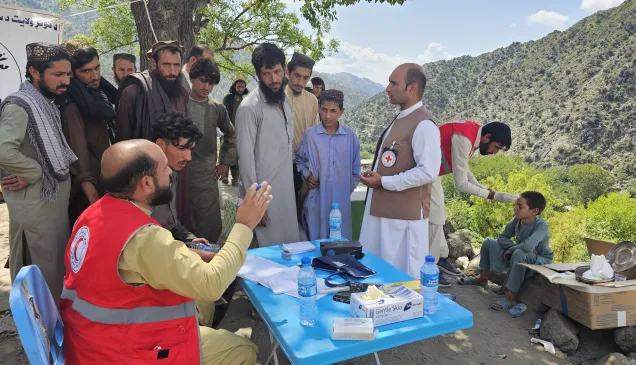Two-year-old Raziais was admitted to the Therapeutic Feeding Unit, at Mirwais Regional Hospital. She is one of the many children in the hospital undergoing treatment for severe malnutrition.
Afghanistan: Keeping babies warm, beyond our activities
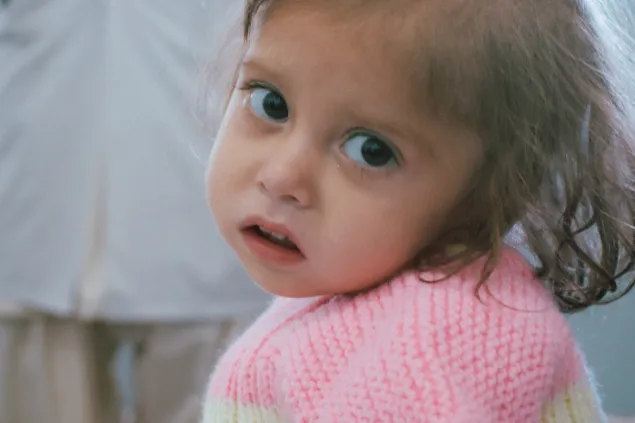
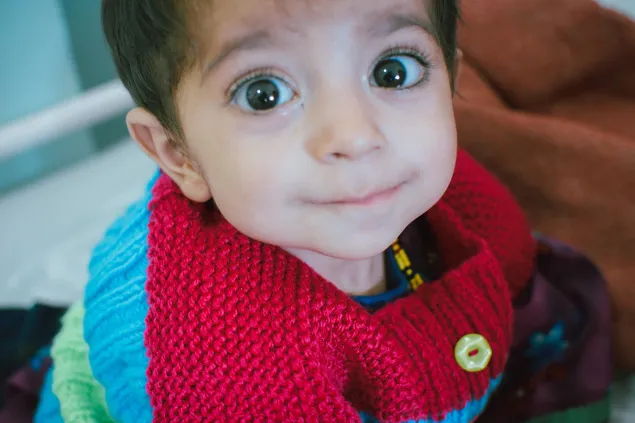
Gul Suma is one-year-old and was also admitted to the nutritional unit. Her mother had trouble lactating due to which the baby did not get adequate amount of nutrition. With regular treatment and nutritional support, little Gul got stronger.
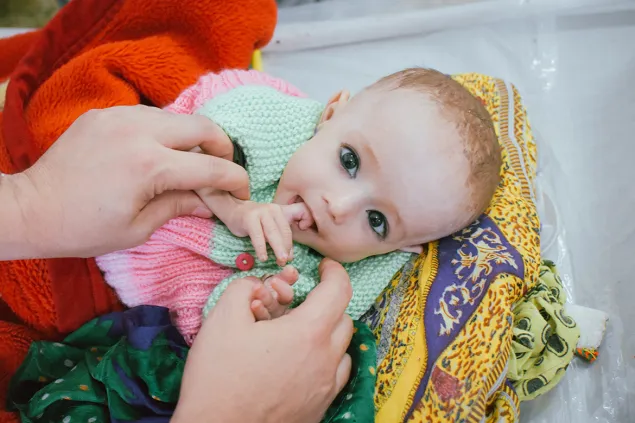
Abdullah is almost a year old and suffered from chronic diarrhoea and vomiting. Due to lack of proper medical facilities in their province Ghazni, the family finally brought Abdullah to Kandahar, where they found appropriate medical care for the little one.
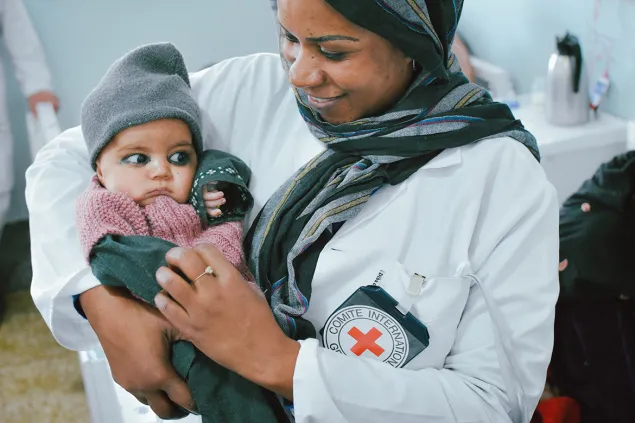
Ruth Mudasia from Kenya is an ICRC nurse in the hospital’s paediatric department, where she supervises and trains 57 Afghan nurses to deliver the best possible medical care. Little Bashir Ahmad, not even a year old, is from Helmand. Many children are brought to the hospital from provinces that don’t have adequate medical services and facilities.
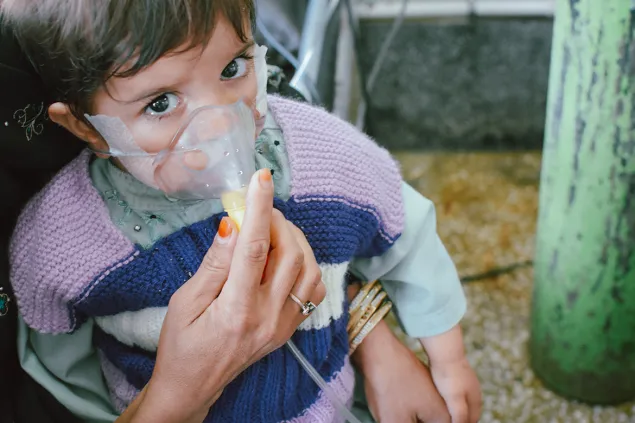
Mustapha is three years old. He was admitted to the hospital because of pneumonia, one of the many respiratory infections that are common during the bitter winter.
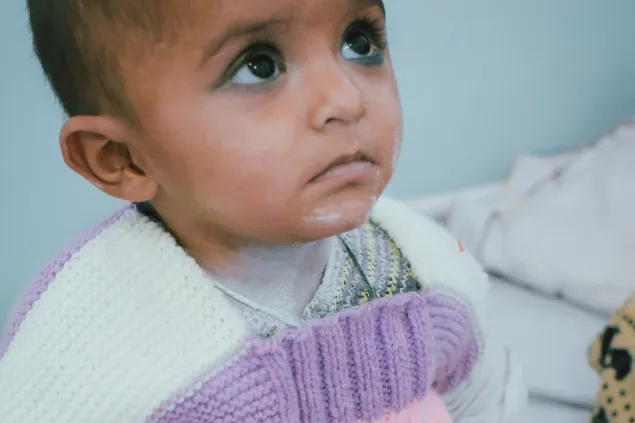
One-year-old Wahidullah is from Kandahari district of Dand, where he caught measles infection. “My son was dying,” explains his mother. He was admitted to the nutritional unit to help in his recovery.
Measles cases are frequently reported from Kandahar. Mirwais hospital treated 1,871 children severely infected by it last year alone.
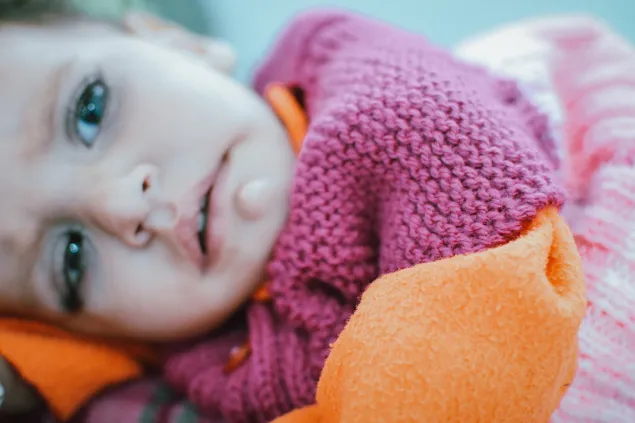
Samina is just over a year old and is from the province of Paktya. The family was forced to move to Kandahar because of lack of water and food in their area. Samina has a brother and two sisters.
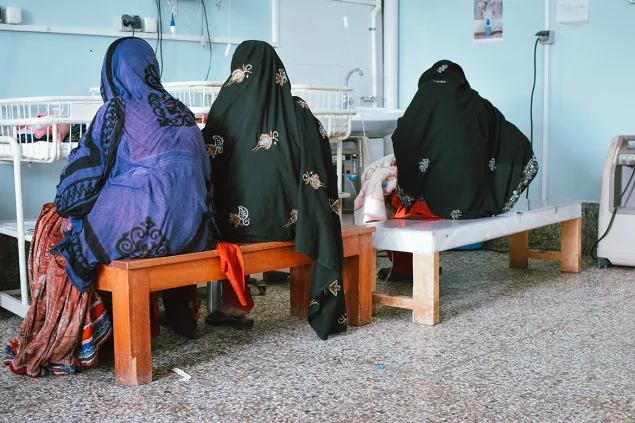
At Mirwais hospital, many children have to undergo treatment due to the ailments they suffer because of severe social and economic problems. When we told these mothers that the woollens were a gift from women from another country who wanted a cosier winter for their kids, they could not find enough words to express their gratitude.
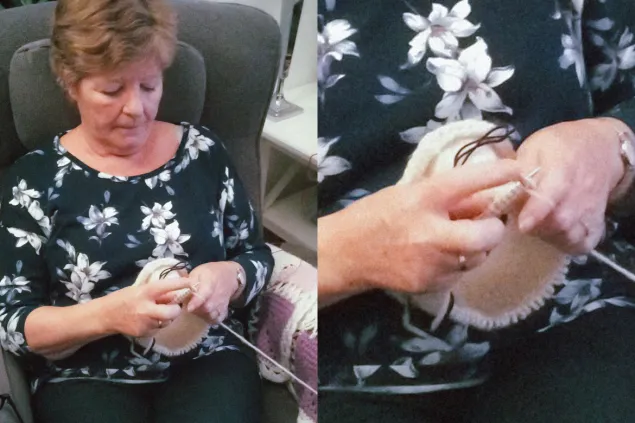
When Tone Mikalsen saw that little babies needed some warmth and care in Afghanistan, she coaxed her family and friends into joining the knitting movement. She has been knitting hats, socks and blankets, and sending them to Afghnaistan, all the way from Norway.
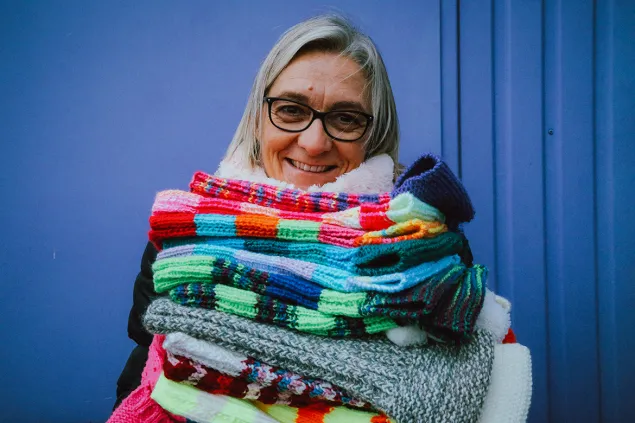
Eliane Mackay, the woman behind the knitted sweaters, hats and blankets from Switzerland.
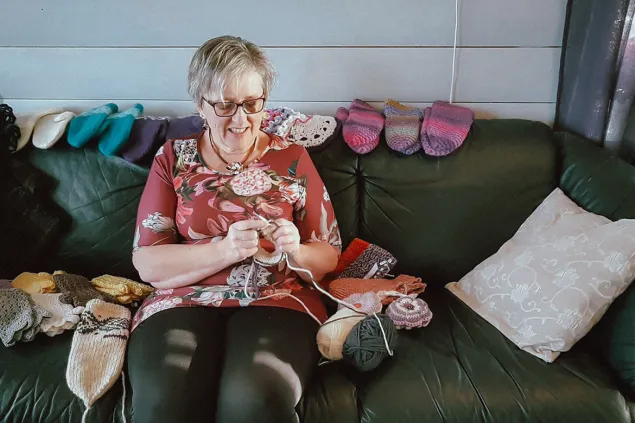
Also part of the knitting movement, Gry Kristin Seljestad Waage from Norway, loves knitting some cute toys, hats, socks and blankets.
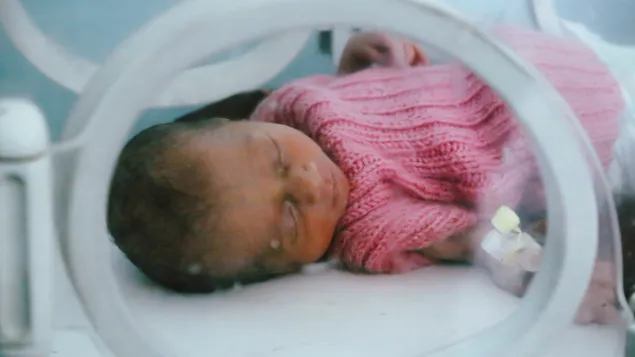
This picture inspired the knitting movement in a very distant point of the globe from Afghanistan. Taken by our ICRC colleague, Thomas Glass, who made all this movement possible by covering and publishing a story on the new paediatric ward at Mirwais Hospital, during his mission in Afghanistan last year.
Children undergoing treatment at Mirwais Regional Hospital in Kandahar wear sweaters knitted and donated by an ICRC colleague's aunts and friends in Norway and Switzerland.
The hospital's paediatric ward is a busy place – close to 175 children under the age of five are admitted here each week, besides over 450 births on an average on a weekly basis.
Since 1996, the ICRC has been providing technical and financial support to Mirwais hospital to ensure patients receive quality medical treatment and that services are free of cost. Besides the paediatric ward, the ICRC also supports the gynaecological ward, where many women receive medical attention and free treatment.


